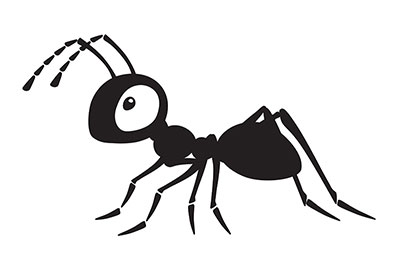Bugging Out: Common Insects in Southwest Florida Pools and How to Protect Your Oasis
Thu, Nov 30th, 2023
Ah, the allure of a sparkling pool in the backyard—a true oasis in the scorching heat of Southwest Florida. However, this paradise is not immune to invaders. As any pool owner in the region can attest, insects are a persistent challenge that can affect both the water quality and the efficiency of pool equipment. In this blog post, we will delve into the common insects that frequently find their way into Southwest Florida pools, explore their impact on pool maintenance, and provide practical tips on how to keep your pool bug-free.
Common Insects in Southwest Florida Pools
Mosquitoes:
Mosquitoes are a ubiquitous presence in Florida, and they don't discriminate when it comes to laying their eggs. Stagnant water in pools provides an ideal breeding ground for these pesky insects. Not only can their bites be irritating, but they also pose health risks by carrying diseases like West Nile virus and Zika virus.
Ants:
Ants are excellent swimmers and are often found navigating the waters of Southwest Florida pools. While they may not directly harm the pool water, their presence can lead to unsightly floating debris and compromise the overall cleanliness of the pool.
Bees and Wasps:
Bees and wasps are attracted to the water, especially during the hot summer months. They may buzz around the pool, and in some cases, they can create nests in nearby structures. This not only poses a threat to pool-goers but can also be a nuisance that affects the overall pool experience.
Palmetto Bugs (Cockroaches):
Palmetto bugs, a type of large cockroach, are common in Florida and often find their way into pools. Not only are they unsightly, but their presence can also introduce bacteria into the pool water. Additionally, they may clog pool filters and skimmers, affecting the efficiency of the pool's circulation system.
Water Quality:
Insects, especially mosquitoes, can introduce organic matter into the pool water as they lay their eggs. This organic matter becomes a food source for bacteria and algae, leading to cloudy water and potential imbalances in chemical levels. This compromises the overall water quality and can make the pool unsafe for swimming.
Filter Clogs:
Insects such as ants and palmetto bugs are notorious for finding their way into pool equipment, including filters and skimmers. Over time, this can lead to clogs, reducing the effectiveness of the filtration system. A compromised filtration system not only affects water clarity but can also result in increased energy consumption and maintenance costs.
Sting and Bite Risks:
Bees and wasps around the pool area pose a direct threat to swimmers. Accidental encounters can result in painful stings or bites, turning a relaxing swim into a hazardous experience.
What You Can Do
Regular Maintenance:
Consistent pool maintenance is key to keeping insects at bay. Skim the pool's surface regularly to remove debris, and clean out skimmer baskets and filters to prevent clogs. This proactive approach will not only enhance water quality but also contribute to the longevity of your pool equipment.
Use Pool Covers:
When the pool is not in use, invest in a quality pool cover to keep insects out. This serves as a barrier, preventing unwanted visitors from laying eggs or falling into the water. It's a simple yet effective way to protect your pool and maintain water quality.
Professional Pest Control:
Consider enlisting the services of a professional pest control expert. They can assess your pool surroundings and implement measures to reduce the likelihood of insects making their way into your pool area. Regular treatments can be tailored to the specific insect challenges you face.
Landscaping Considerations:
Evaluate your landscaping to minimize the attraction of insects. Trim trees and bushes away from the pool area to reduce the likelihood of bees and wasps building nests nearby. Additionally, address any standing water issues in the vicinity, as this can be a breeding ground for mosquitoes.
Maintaining a pristine pool in Southwest Florida requires diligence, especially when it comes to dealing with common insects. By understanding the types of insects that frequent pools in the region and taking proactive measures to prevent their intrusion, you can ensure that your oasis remains a source of relaxation and enjoyment for years to come. Regular maintenance, the use of pool covers, professional pest control, and thoughtful landscaping can collectively contribute to a bug-free and crystal-clear swimming experience. So, dive in and make the most of your pool without the unwanted company of insects!
Contact Sweetwater Pool Service to Keep Your Swimming Pool Looking Great all year long!



